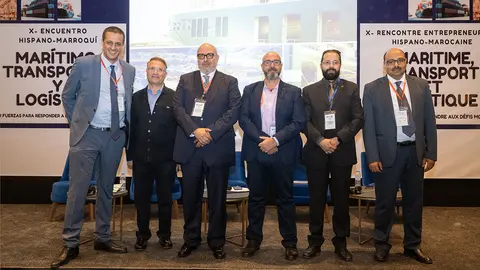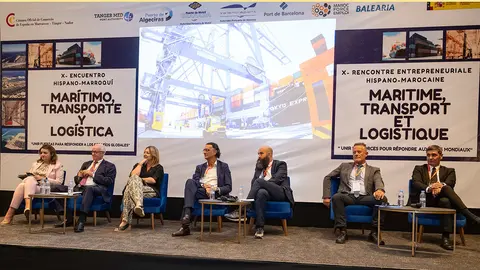Baleària calls for more planning in the maritime sector ahead of the next Operation Crossing the Strait
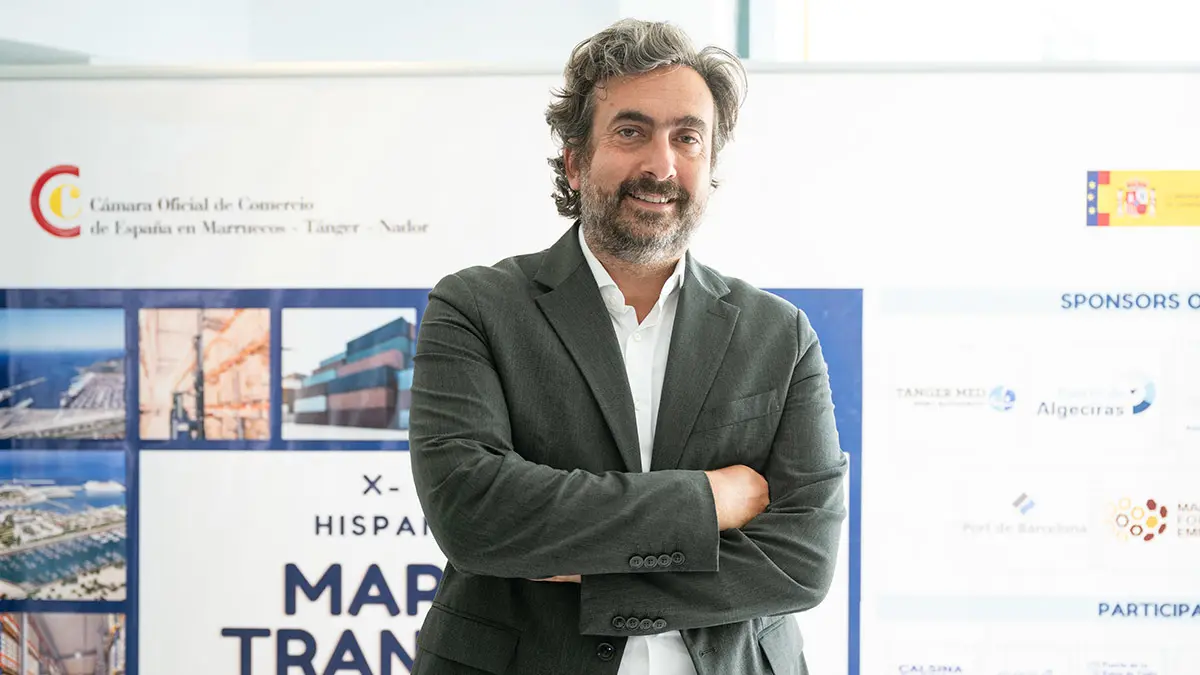
The Barceló Hotel in Tangier hosted the 10th Hispano-Moroccan Maritime, Transport and Logistics Meeting organised by the Spanish Chamber of Commerce in the Tangier city.
The Spanish shipping company Baleària was present at the event and Atalayar had the opportunity to talk to its CEO, Georges Bassoul, who called for greater organization of the maritime sector in terms of schedules and planning in view of the very important Operation Crossing the Strait that will allow hundreds of thousands of Moroccans living abroad to return to Morocco to enjoy the summer holiday period.
The CEO of Baleària also highlighted the great Moroccan side of his company and its commitment to decarbonisation and sustainability.
Georges Bassoul, CEO of Baleària, what were the objectives from Baleària's point of view for this event that brought together people, companies and administrations that are very important for the maritime sector?
As you know, we are a Spanish maritime company that has been operating with Morocco for more than 20 years, which is part of our heart; a large part of our team is Moroccan, so we consider ourselves a Spanish-Moroccan company, and we are a bridge between the two countries, between the two cultures, since our main mission is to facilitate the exchange of people, goods, culture and economy between these two countries.
In this way, we have a responsibility to accompany the development of both sides of the Mediterranean Sea.
We have heard you ask for a little organisation in terms of timetables, in terms of regulation of the sector for better organisation, better results and greater support, haven't we?
What we need to do with all the parties involved is to improve the service and to have a service for maritime transport for passengers, just as it is in many cases in the air or on trains. In other words, a ship that leaves on time, that arrives on time, with efficient management of maritime traffic, of operations in ports and, of course, of the shipping companies themselves, which have to manage their places and their ships well.
Nowadays, we still sometimes have the feeling that we put a lot of ships and the ship leaves when it can, and in a certain way it is also a lack of respect for the customers because we are in the 21st century and they expect us, when they buy a ticket for a date and a time, to have a ship available to embark on that day at that time.
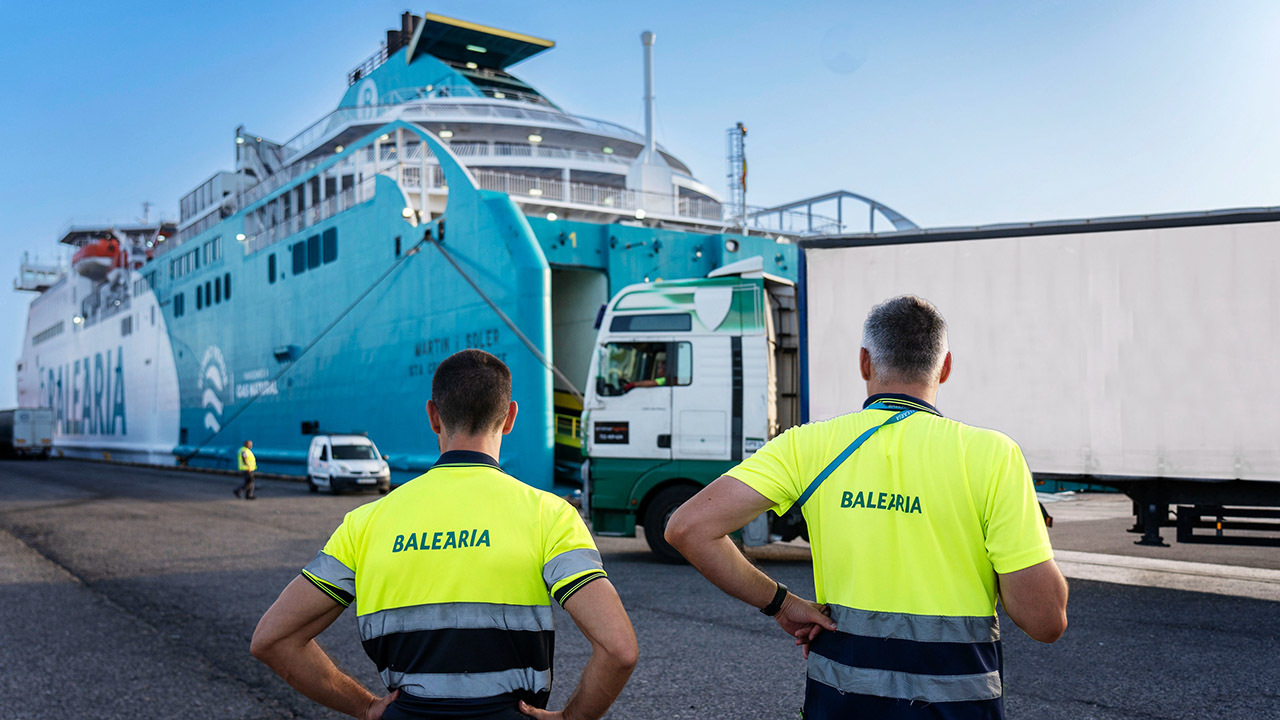
It is done with trains, with planes perhaps less punctuality, but it can also be done with ships.
It should be possible, another thing is the change of culture and the operational difficulties, because there are many ships, many shipping companies, not only Ferri traffic, there are also container ships, there are other types of ships; many operators coexist in a very limited environment.
You said that you are already a Spanish-Moroccan company. The collaboration between the two countries, the two continents, is growing and is in good health.
We live from maritime transport between the two countries, but not only do we live from it, our responsibility is to promote it, because we are totally convinced that the more people move, the more we get to know each other, the more we exchange culture, the more we exchange know-how. And the development of the two countries will depend on more communications.
There was talk of the motorways of the sea, I remember some time ago maritime transport, with a change of fuel, also has a role to play in decarbonisation, which is so fashionable nowadays in terms of sustainability; you are also making a major effort and modernisation in this area.
We are carrying out a major modernisation of our fleet with new ships. Every year we bring out one or two new ships, which are very important investments, but, apart from this, we have made a very important commitment to natural gas, which we know is a transition fuel, but which generates 30% fewer emissions than traditional fuels, which is our contribution to sustainability; the motorways of the sea are therefore a path of exploration and development, as we believe that maritime transport can not only serve to cross the sea, but also to accompany the trucks well within the European continent with lines that can leave from Tangiers to France or to other countries where they end up.
And since the ship also pollutes less than the lorry, if the lorries get on the ship as they get on the train, we will all pollute less as a society.
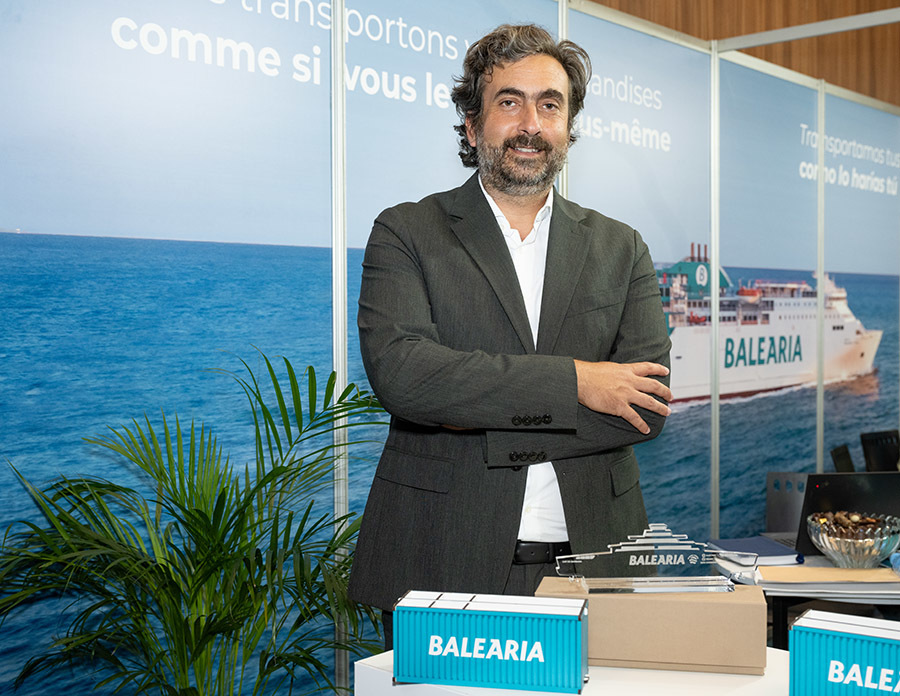
In just a few days we have before us Operation Marhaba. This year's Operation Crossing the Strait is being brought forward a little because of the Lamb Festival. Baleària plays a fundamental role. How are you facing this year's test of fire?
For us, Operation Marhaba is a very important moment in our commercial and operational activity. Last year we transported almost one million people during Operation Marhaba, which is a lot of people. We expect to transport a lot of people this year as well, because it is our vocation.
To do this, we have to prepare the boats well, prepare the crews well, prepare the food well, prepare the prayer rooms well, prepare the children's rooms well, prepare the digitalisation of the tickets and the sales so that all these people who want to return to their country, because many of them actually come from Europe to Morocco, spend two weeks, a month, a month and a half at home, so that this time of the crossing is also a pleasure.
It is not only about the obligation to cross; we see it every time we participate in the embarkations, the looks and the faces of the people change between the moment they are on the dock and when they board the boat. When they get on the boat they finally feel almost at home, so we consider that the boat is already part of the destination in reality.
To avoid crowds, I understand that you can get tickets for both people and cars on the Internet in advance.
Of course, you can do this and even we recommend it. We think it is very important that everyone looks at the available places per departure and per day, as everything is available online and can be viewed and booked to ensure a place and also to allow a homogeneous flow. If everyone goes to the port without tickets, this also generates a co-management which is not very normal. In fact, nobody goes to the airport without a ticket.
We go to the airport the day we have a ticket and a guaranteed seat or even to take the train. So we have a field of communication work there to explain to all the people who travel with us and with all the other shipping companies to get a ticket as soon as possible, to allow the authorities to organise themselves and to calibrate the resources of people to help with all kinds of operations: police, customs, etc.... So that these operations are carried out as smoothly and calmly as possible.
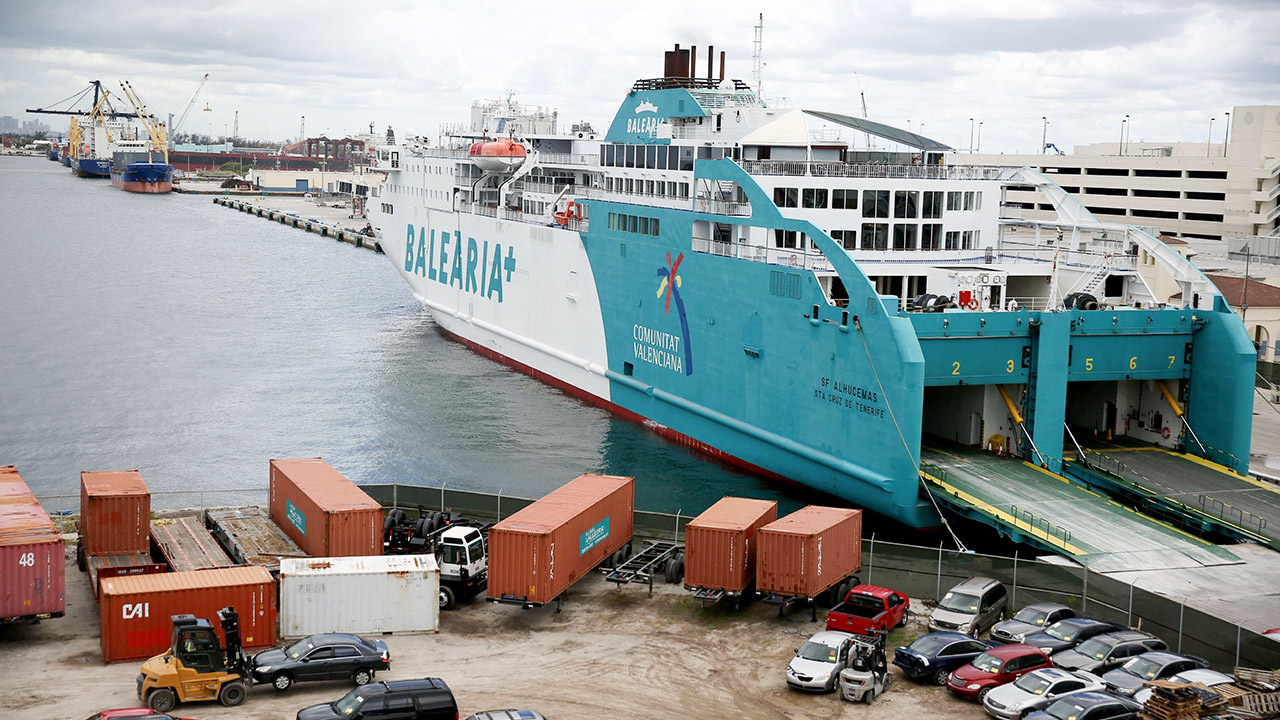
Finally, we have talked about the future, decarbonisation and sustainability. But the organisation of the football World Cup has been mentioned on several occasions; it is a milestone we are all working on with a view to 2030, isn't it?
Indeed, the football World Cup is going to be a global event where people from all over the world will come to visit us in Spain, Morocco and Portugal, and indeed, for us, whose duty is communication between the two continents, we will have a role to play in accompanying all these people who are going to visit us beyond our own citizens who will go to watch matches. And we hope to have ships in good condition, services in good condition, so that both Spain and Morocco can be proud of what we will offer to all these people who will come from Brazil, Australia, the United States, China, etc. .... to see their teams play.
What would you say to a potential client? Why should they use Baleària? What does Baleària have that other companies don't?
We are dedicated to transporting all the people who want to travel in the best possible way, we want to transmit reliability, a lot of care when it comes to treating the people who travel.
We want them to feel like they are in Morocco when they get on the boat, there is a lot of Moroccan crew. There is a special meal for them. On many of the trips there are music groups or local entertainment.
I think our main attribute is to try to make this trip as pleasant as possible, as enjoyable as possible for these people, many of whom come from far away and spend many hours in the car before getting on the boat, and we want this last part of the trip to be as positive as possible.


